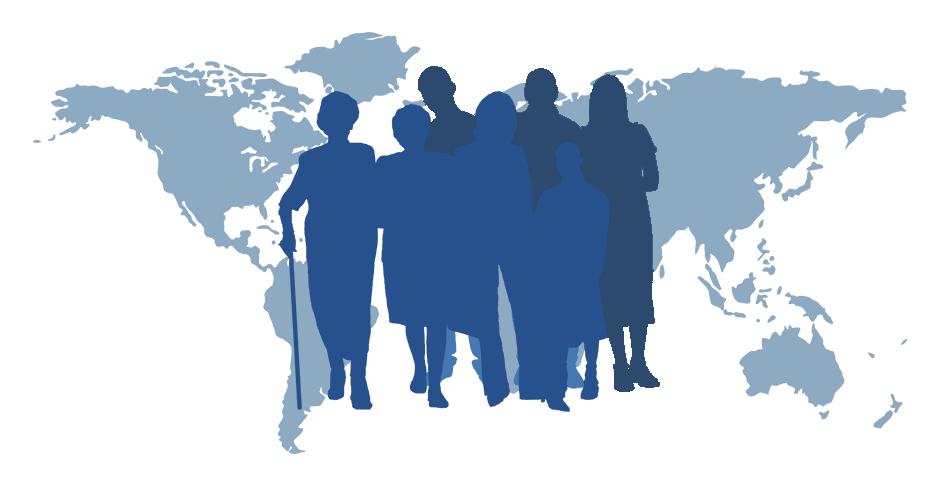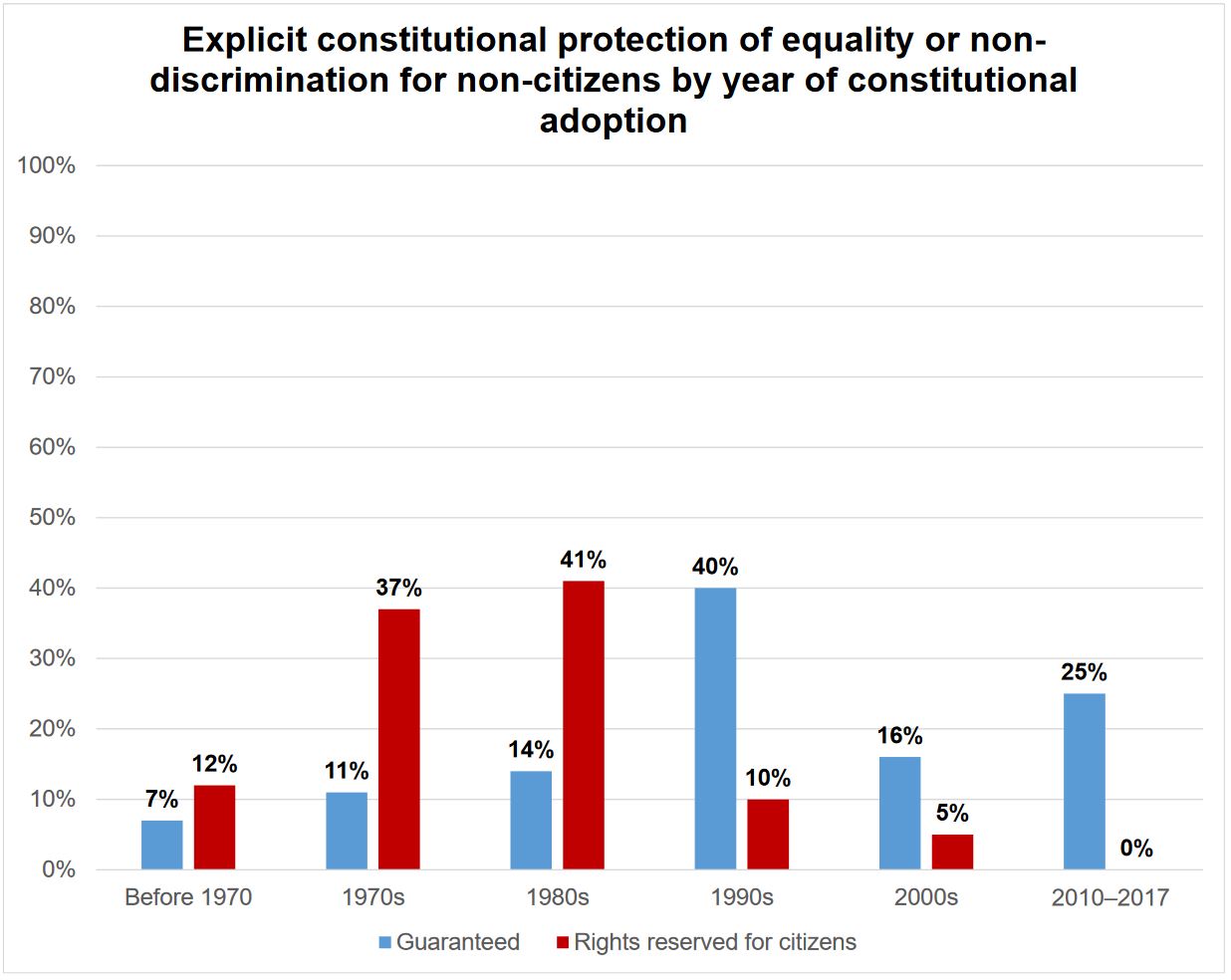
WORLD Policy Analysis Center
FACT SHEET: JANUARY 2020
- As of 2017, there were 258 million migrants and refugees around the world, representing 1 out of every 30 people
- While some migrated by choice, others were driven from their homes by wars, natural disasters, or economic and political collapse
- International treaties protect basic rights for migrants and refugees regardless of their immigration status, including:
- non-discrimination
- a right to education
- a right to decent working conditions
- a right to emergency medical care
- Stronger protections exist for lawfully staying migrants, including:
- a right to engage in employment
- a right to social security and public assistance
- Constitutions can play a role in ensuring migrants can fulfill these rights and access essential institutions and services, which supports rapid integration:
- In Canada, the Supreme Court found that a health system that provided different standards of care to refugees depending on their country of origin violated the right to non-discrimination
- In Ireland, the Supreme Court held in 2017 that an asylum seeker could not be excluded completely from access to employment, given that rulings on asylum applications often took years
- In the U.S., the Supreme Court ruled that the Equal Protection Clause applies to “persons,” not “citizens,” in an important case guaranteeing the right to education to migrant children
- Constitutions can also play a more symbolic role in welcoming migrants and providing a tool for opposing discrimination:
- In Germany in 2015, refugee registration centers distributed 10,000 copies of the constitution in Arabic
- In South Africa, politicians and advocates have been speaking out against xenophobia by reference to constitutional protections for the rights of refugees, which have been established through case law
- In India, activists protested a proposal to create different standards for naturalization based on religion, citing the constitution’s guarantee of equality
- Globally, 22% of constitutions prohibit discrimination on the basis of citizenship, while 60% include protections of equal rights regardless of national origin. Some also protect more specific rights:
- 17% of constitutions protect the right to education for non-citizens; however, 4% explicitly restrict some aspect of this right or reserve education rights for citizens
- Similarly, 14% of constitutions protect non-citizens’ right to health, but 3% of constitutions restrict health rights to citizens
- A smaller number—8%-- explicitly prohibit discrimination on the basis of statelessness:
- People can become stateless at birth in a range of circumstances, including being born in a refugee camp. People can also become stateless later in life due to a change in family status or if their country of origin ceases to exist
- In the Dominican Republic, a 2013 court ruling retroactively ending birthright citizenship left at least 138,000 people stateless, most of whom were Haitian by descent
- Worldwide, there are more than 10 million stateless people, who often struggle to access education and employment due to their status
- Beyond clearly protecting non-citizens’ rights, ensuring access to legal representation and the ability to engage with the legal system without fear of retribution are critical for justice


ABOUT ADVANCING EQUALITY
To learn more, please read or download the open-access book Advancing Equality: How Constitutional Rights Can Make a Difference Worldwide (Jody Heymann, Aleta Sprague, and Amy Raub; University of California Press, 2020).
Analyzing the constitutions of all 193 United Nations countries, Advancing Equality traces 50 years of change in constitution drafting and examines how stronger protections against discrimination, alongside core social and economic rights, can transform lives.
ABOUT WORLD
The WORLD Policy Analysis Center (WORLD) aims to improve the quantity and quality of globally comparative data on policies affecting health, development, well-being, and equity. With these data, WORLD informs policy debates; facilitates comparative studies of policy progress, feasibility, and effectiveness; and advances efforts to hold decision-makers accountable.